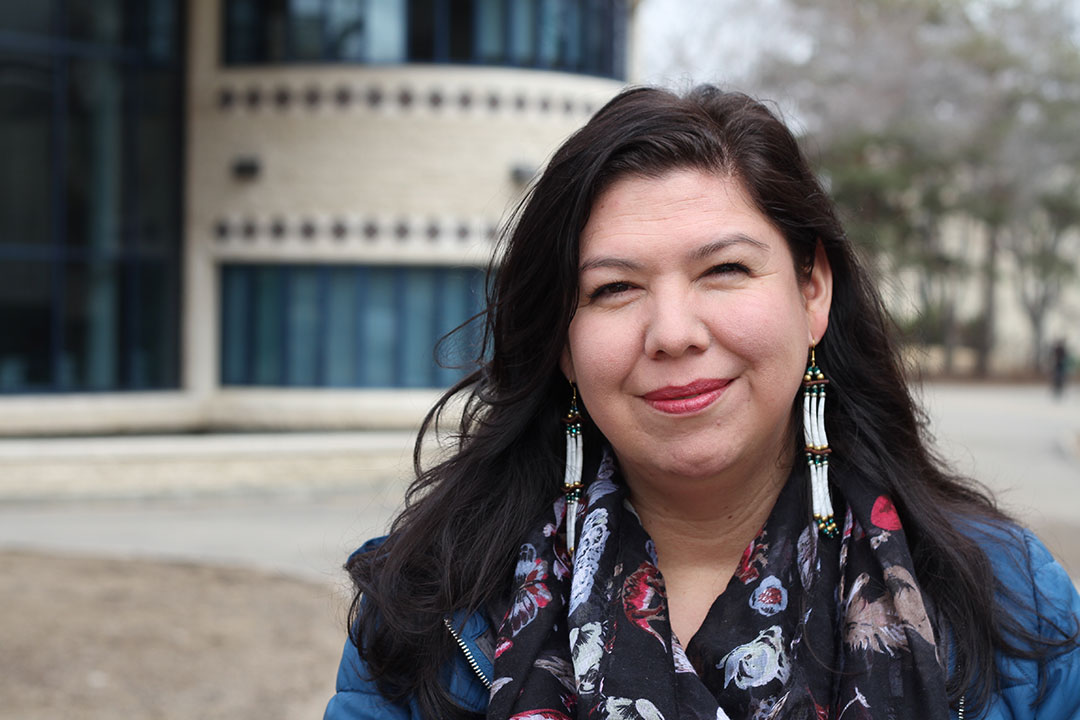
Family's first gathering
As a child of adoption, Tasha Hubbard knows what it’s like to see a reflection of yourself in a complete stranger.
By HenryTye GlazebrookHubbard marvelled at the four siblings at the centre of her new documentary, Birth of a Family, as the brother and sisters were reunited for the first time since childhood. She watched them survey each other’s faces, finding shades of their own, and remembered her experience meeting her half-sisters and half-brothers.
“It was interesting to see that moment where they’re comparing—‘We have the same eyebrows’ or ‘We have the same smile’—because I knew that feeling of recognizing yourself in someone,” said Hubbard, an assistant professor of English at the University of Saskatchewan.
“When you’re a foster kid or you’ve been adopted into a family, you don’t get that. You don’t get to see yourself in others, and so that moment is really powerful. That joy in seeing elements of yourself in someone else stayed with me. It’s a physical symbol of the connection you have.”
The four siblings featured in Birth of a Family are products of the Sixties Scoop, the Canada-wide practice of taking Indigenous children from their families and placing them with foster programs or putting them up for adoption. The process, which began in the 1950s and continued into the 1980s, displaced countless people.
Birth of a Family began with Betty Ann Adam, one of the four people the film follows and a reporter with the Saskatoon StarPhoenix, who approached Hubbard as a collaborator early on in the process.
The film was funded by the National Film Board (NFB) of Canada, which will feature it in its Canada 150 anniversary tour, and will have its world premiere screening on May 2 as a part of the prestigious Hot Docs Film Festival in Toronto.
Hubbard sees its inclusion in the NFB’s Canada 150 tour as an opportunity to explore and evaluate some of the country’s dark chapters.
“Canada is featured in the film in interesting ways. The siblings are coming to terms with what Canada decided on their behalf and, rightly so, they’re not happy with the decisions made,” she said. “I think it’s important for this film because it’s telling a chapter of Canadian history that people aren’t aware of. I think it complicates Canadians’ visions of themselves as benevolent, as always welcoming, as doing the right thing, because Canada has done so much wrong.”
For Hubbard, the idea of bringing together this family was immediately attractive based on her own experiences re-entering a culture that she had been removed from.
“I know what it’s like to not know my language, which is something that they talk about in the film,” she said. “I know what it’s like to feel that sense of unfamiliarity when I first started coming back to my community. You don’t know how to belong. It doesn’t matter if you’re given up or taken, it’s still a similar experience.”
Hubbard’s hope is that the film will be seen not as a definitive text on the Sixties Scoop, but as an entry point to greater learning and discussion about the history of Canada, its harsh realities and how those moments continue to ripple into modern day.
“I think of documentary as presenting a story, but also opening a door to an issue and inviting people to learn more about it,” she said. “It’s important to see that history lives on and that we’re dealing with its legacies in our presence.”

